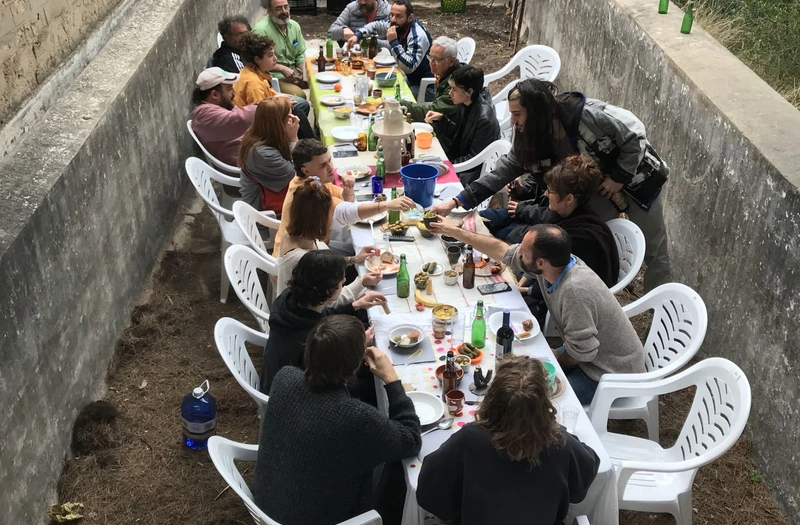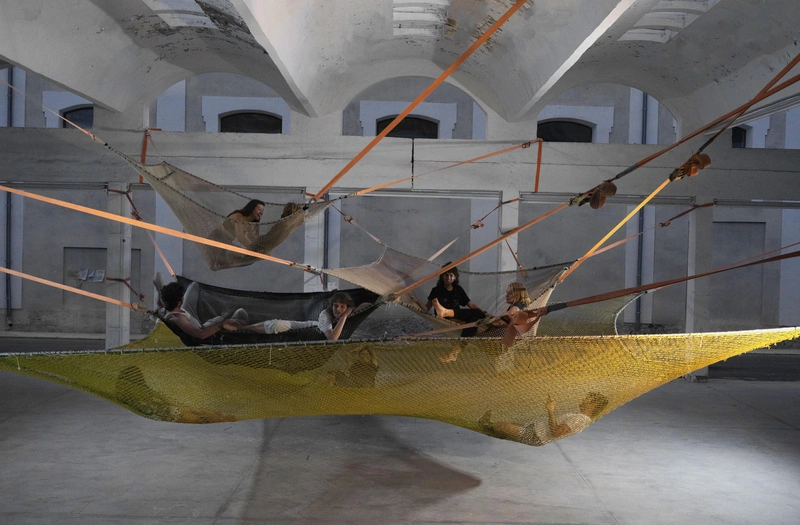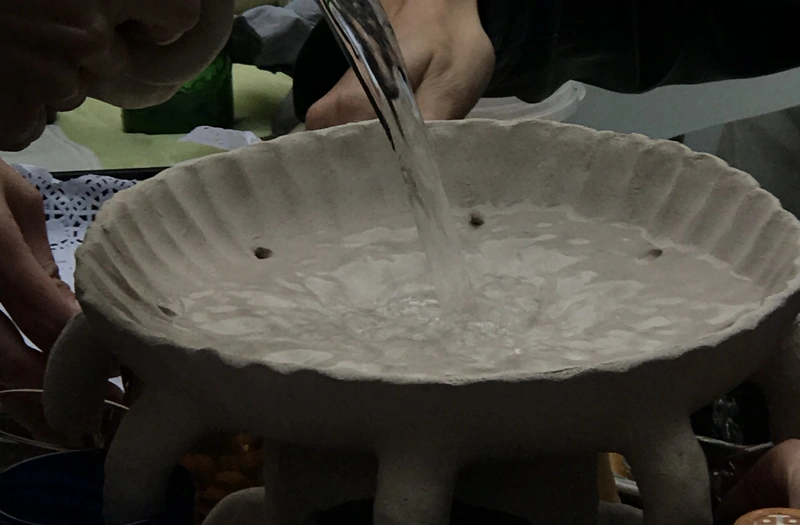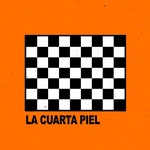FC was an initiative located in the drying warehouse (Secadero) of the old tobacco factory in Alicante (now part of the C.C. Las Cigarreras) that integrated installations, workshops and talks, with the aim of establishing conversations but also exchanging knowledge capable of building a sense of belonging around its neighborhood (Carolinas).
For two centuries, the Alicante Tobacco Factory was one of the main economic engines of the Alicante metropolitan area. After its dismantling in 2008, the third oldest tobacco factory in Spain began a process to convert its 30,000 m2 into a centre for contemporary culture. FC aimed to turn the Secadero into a small shared cultural laboratory, where children and adults, cultural agents, farmers, artisans and other professionals can meet and produce joint agendas for the future and our communal life.
The project is divided into two phases, both carried out in an open manner and in collaboration with and participation of the neighbors who wanted to join the initiative. First, ephemeral facilities were designed and built. Conceived as enjoyable meeting places, they are the result of material experimentation with waste from the productive landscapes of Alicante. In an exercise in circularity, we reused fishermen's nets, quarry sludge, construction materials and sheets from the Carolinas neighborhood to build a hammock, a cave, a spa and a garden, with the help of fishermen from Santa Pola, neighborhood sewing workshops and youth associations such as EDUSI-youth... Secondly, the Secadero was inhabited. During July and completely open to the public, we held workshops that expanded the ecologies of the installations with thematic days on memory, affects, economy and ecology. In addition, the programme was open so that any neighbor could share their knowledge, thus we learnt how to make candles, silk-screen printing or tango dancing. Spaces such as the ''hypergallery'' promoted citizen art sharing and the programming of concerts and film screenings ensured intergenerational encounters.
The proposal for the reactivation of the cultural centre aims to tests fairer and more sustainable social architectures, both economically and ecologically. Not only do we contribute to restoring pride in the neighborhoods's material culture, but we also speculate, with several hands, on its future, experimenting with alternative outcomes. It is about mixing the most contemporary debates with the most local cultures.
FC aims to establish links between cultural institutions and their neighbourhood “piercing the museum” in order to influence the state of the immediate context.
We promote the use of materials and traditional knowledge from the immediate environment so that we reflect on their meanings, histories and conflicts.
With the association of different profiles (designers, artists, sociologists, cooks, farmers...) we obtain an interdisciplinary crossover that benefits on the one hand, the design of the facilities for the neighbourhood and ensures on the other hand, the circulation of knowledge and the survival of those industries that are exposed to disappearance.
In addition, our practice is crossed by collaboration, not only between humans but also between species. We seek to provide multi-species agency in the different phases of the project design, production and activation so that we integrate nature in order to confront the biodiversity crisis.
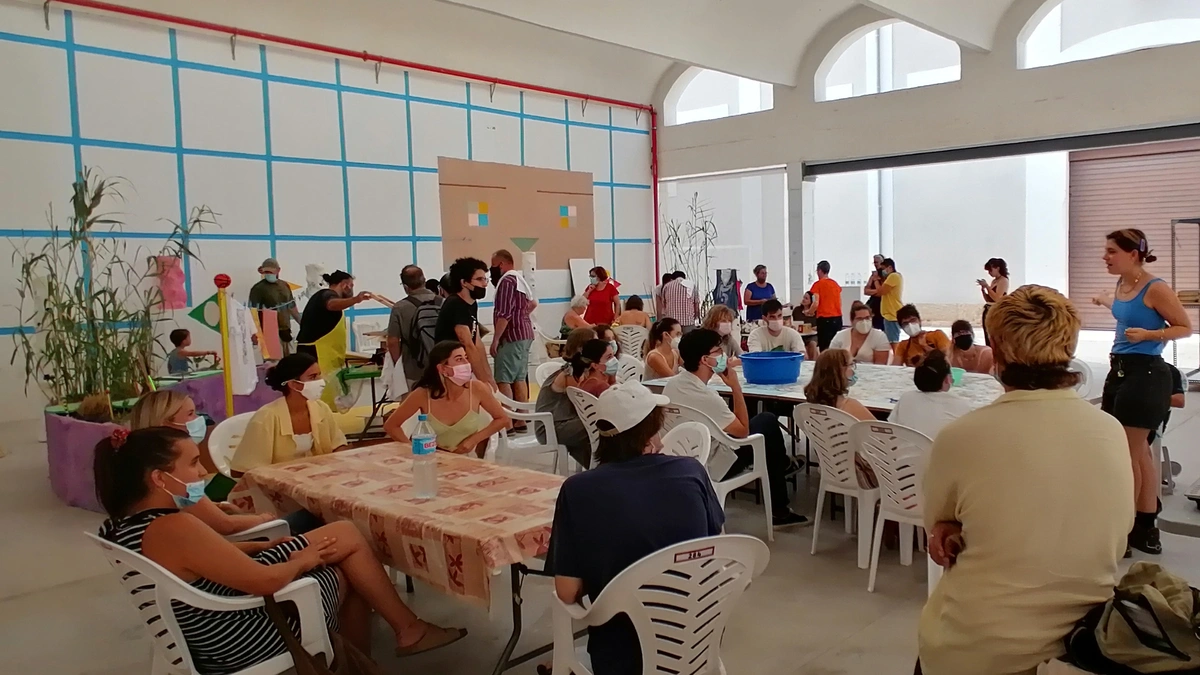
During July and completely open to the public, we held workshops that expanded the ecologies of the installations with a clear pedagogical mission: the horticulture workshop taught us to recognise and use native plants, the bacteria workshop consisted of producing electricity from contaminated water and the fungi workshop, where we made a mycelium brick. The programme was open so that any neighbor could share their knowledge and propose a workshop.
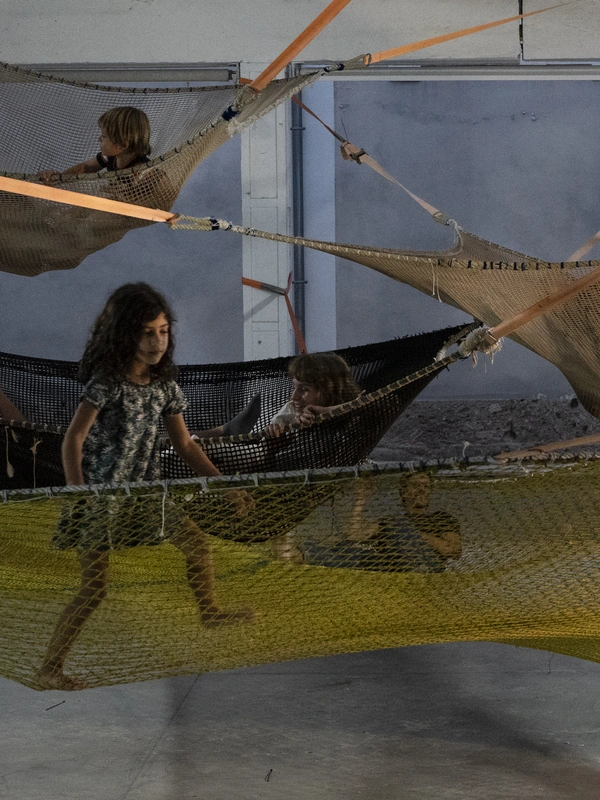
All the installations made the collective experience their main objective, using design as a means to encourage reflection and care. In the case of the nets, the material was transformed in a simple way, learning the traditional sewing technique from the fishermen, and the design encouraged rest and play to be shared, having a large, more accessible, lower net and two other overlapping nets that allowed the brave ones to climb and jump.
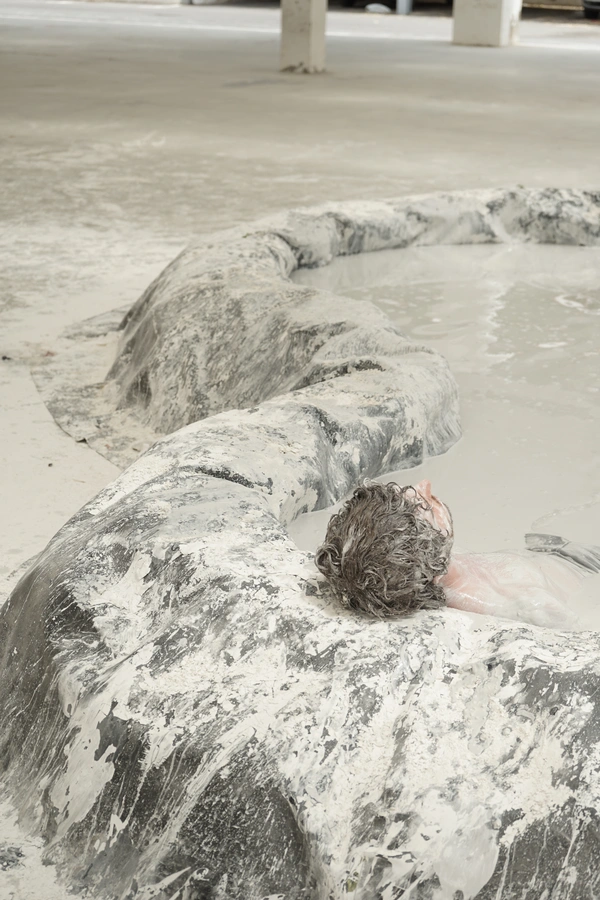
In the mud spa, being under the fountain transported you to another place. You only felt the mud running all over your body, you heard nothing and saw nothing of what was happening outside. Mint leaves in the nose, pink cocktails or ambient music were part of the activity.All the skins inside the pool were homogenised and the bodies inside understood the physical presence of the residue.
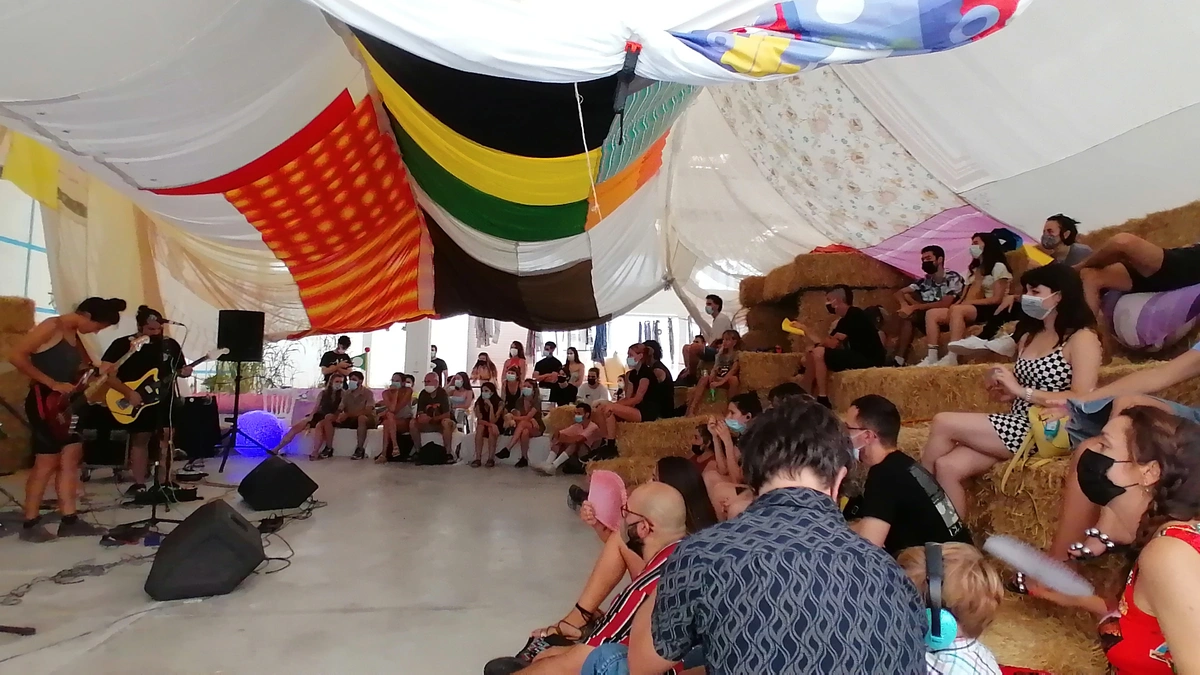
An edible fungi theatre: A stage space, mycelium farm, playground or concert area, the Hypercueva is built with straw bales and remnants of the houses around Alicante’s Tabacalera. Built in collaboration with the ecofeminist collective of sewing Ama Ecocosturoteca. The straw bales that weren’t recycled as a mycelium farm benefited a small heard of goats in Mutxamel, 8 kilometres from Las Cigarreras.
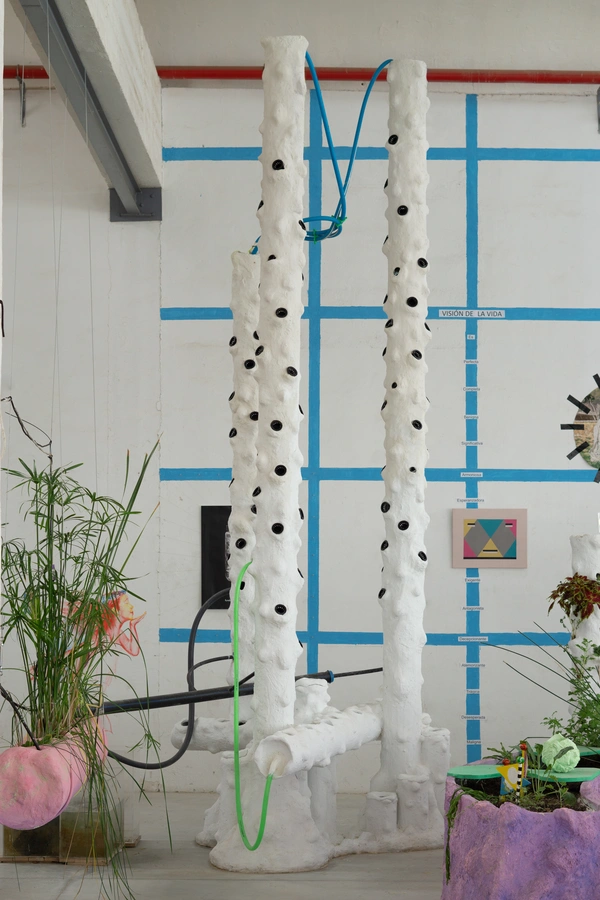
The orchards around Monnegre were once one of the main exporters in Europe. In recent decades, conflicts over water management in southeastern Spain have made this patrimonial orchard an impoverished environment, favouring the intensive agricultural model. Today it is recovering its activity thanks to the discharge of purified water from the city. FC created a vegetable garden with autochthonous species and organised walks to get to know this territory with its farmers.
La cuarta piel is a community of practices located in the middle, meaning both ‘surrounding medium’ and ‘in-between’. Founded in Alicante, promotes projects where the speculative, the material and the procedural, are put at the service of caring for the environment.
Its members have participated in biennials such as Vienna 2017, Venice 2018, Quito 2020 or Krakow 2017. They have also participated in the space of Medialab-Prado (Madrid, ES), Las Cigarreras (Alicante, ES), Architecture Gallery (Porto , PT), Hangar (Lisbon, PT) and in ephemeral architecture festivals such as A Cel Obert (Tortosa, ES) or Insòlit (Palma, ES). They have been formed by the UPM (Madrid, ES), UA (Alicante, ES), UCM (Madrid, ES), ETSAB (Barcelona, ES), PUC (Santiago, CH), UNAM (Mexico DF, MX), Tongji ( Shangai, CH), UWE (Bristol, UK) and the Accademia di elle Arti (Venezia, IT) and have taught at ETSAM, Diego Portales University and the UA.
